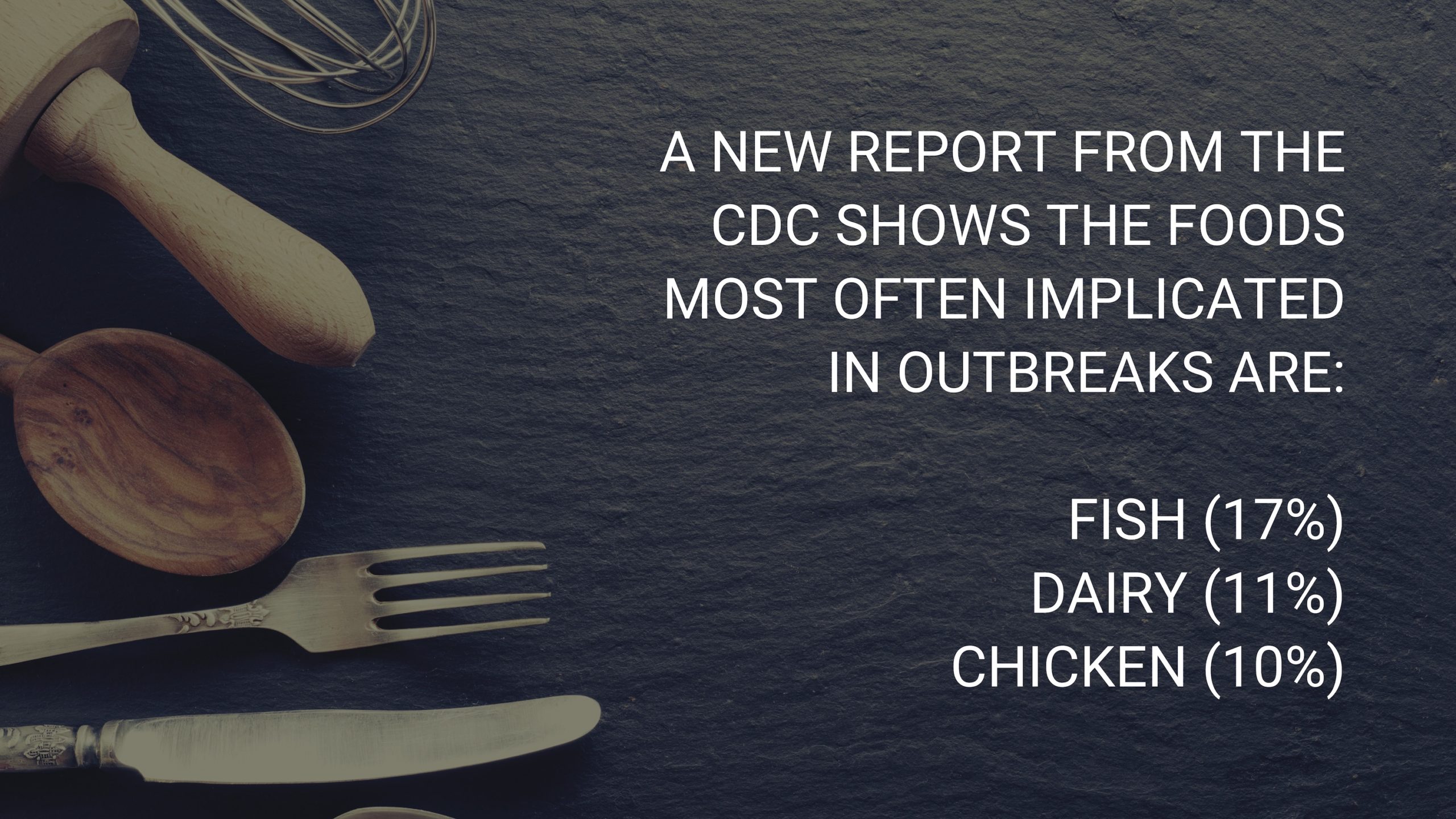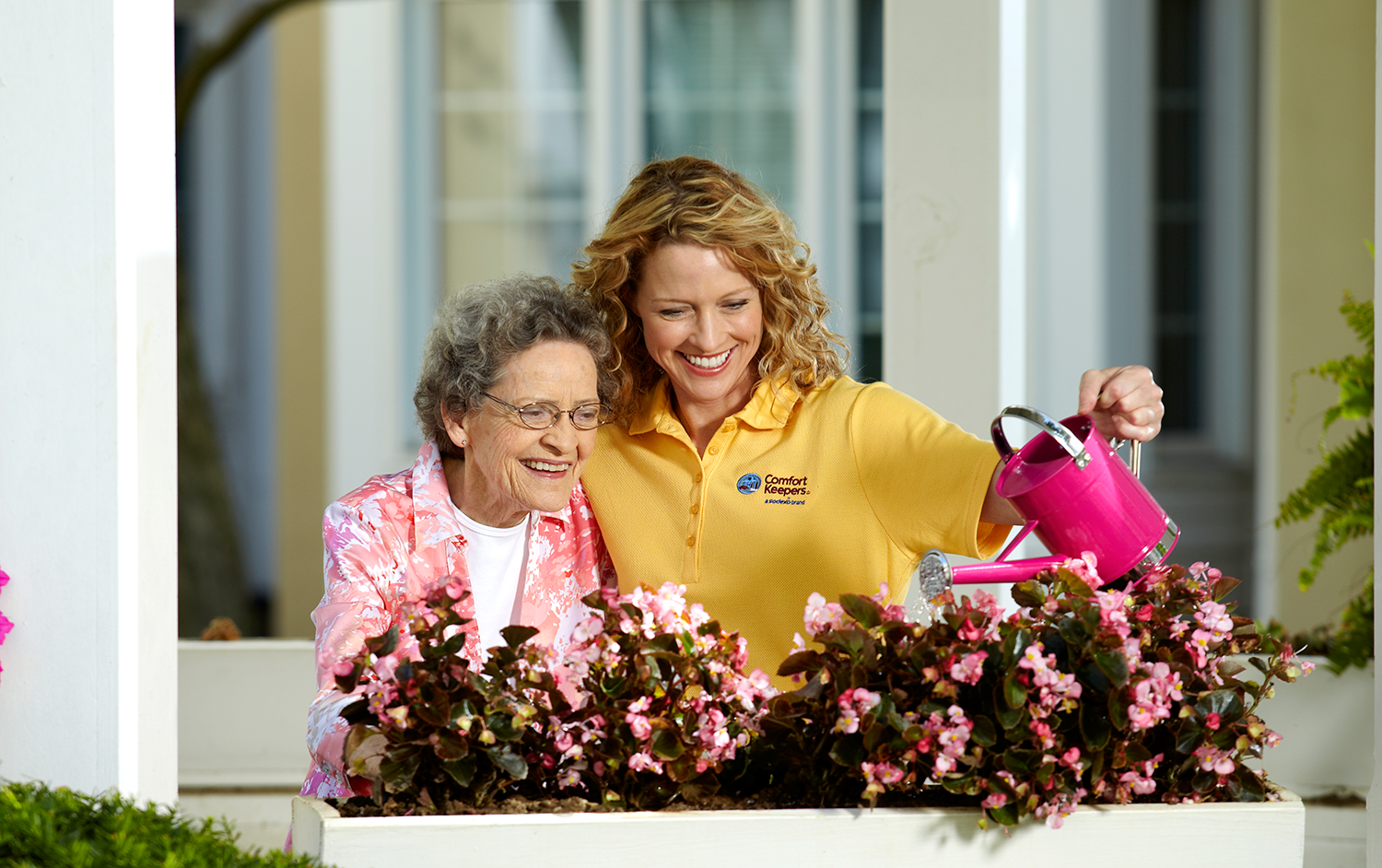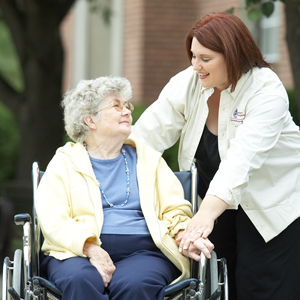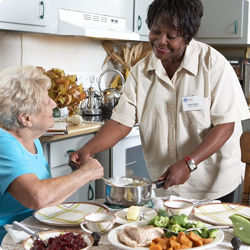What Seniors Can Do to Protect Themselves from Foodborne Illness
Blog | October 31, 2019
What Seniors Can Do to Protect Themselves from Foodborne Illness
Protect Seniors from Foodborne Illness | A Growing Problem – It seems that there is a new recall on produce, poultry, dairy, or fish almost every week – not to mention reports of illness or hospitalization from contaminated food in restaurants. The threat of bacteria and parasites contaminating our food remains constant, even in a world of increased safety and regulation. And with that threat comes the possibility of foodborne illness, which, according to the Centers for Disease Control and Prevention (CDC), affects nearly 48 million people across North America every year.
Although foodborne illness is concerning at any age, seniors are often at greater risk of contracting it, and it can take them much longer to recover. Let’s look at why the effects of foodborne illness are more drastic for seniors.

Protect Seniors from Foodborne Illness: Why Seniors Are More Vulnerable?
There are numerous changes that occur in the body as we age, but one of the most significant is the weakening of our immune system. The body’s natural defense system simply is no longer able to fight illness as efficiently as before. To make matters worse, the liver and kidneys have a harder time ridding the body of toxins. Additionally, the stomach secretes less of the acid needed to help break down pathogens ingested with food and water.
Prescription medication also plays a role. Most medications used to help treat chronic conditions such as diabetes or heart disease have side effects that further weaken the immune system. Because of these factors, bouncing back from any kind of food poisoning becomes increasingly difficult the older we get. For seniors, that often means an increased risk of hospitalization or death.
Tips to Protect Seniors from Foodborne Illness
It’s vital that seniors are armed with the right information so that they don’t risk their health and wellbeing. Below are a few of the recommended tips from the U.S. Food and Drug Administration that senior clients can begin to incorporate into their daily lives.
- At the Grocery Store
- Don’t purchase any dented cans or cracked jars. If the packaging looks as if it’s been damaged in any way, or if it’s leaking, find and purchase a non-damaged one instead.
- Similarly, don’t purchase produce that looks bruised or damaged.
- Place any raw meat, seafood, or poultry in a separate plastic bag so that juices don’t drip onto other food in the cart.
- Pay particularly close attention to the product dating (e.g., sell-by, use-by, and best if used by).
- Food Handling and Preparation
- Wash hands thoroughly with warm, soapy water for at least 20 seconds prior to handling food.
- Sanitize any surfaces that may come into contact with food during preparation.
- Thoroughly wash any produce (fruits and vegetables) with tap water.
- Avoid cross contamination (bacteria spreading from one food to another) by separating raw meat, poultry, and seafood from other foods being prepared. Consider having a separate cutting board for any raw foods and another for vegetables, bread, or cooked meats.
- Check the internal temperature of cooked food with a food thermometer to ensure that it is cooked safely – and do not rely solely on the color of the food. Most meats have a specific safe temperature associated with them. For instance, ground beef is considered safe when cooked to 160 degrees Fahrenheit, while chicken’s safe temperature is 165 degrees Fahrenheit.
- While on the subject of temperature, be sure that your refrigerator temperature is always at or below 40 degrees Fahrenheit.
- Refrigerate all perishable foods within two hours of cooking.
- Food should only be thawed in the refrigerator, cold water, or microwave. Never leave it out on the countertop to thaw.
- When Eating Out
- Whenever possible, avoid foods that have any uncooked ingredients. These are usually marked as such on the menu, but when in doubt, ask the waiter or waitress.
- If the food looks like it hasn’t been properly cooked, ask to have it sent back.
- Refrigerate any leftovers within two hours of leaving the restaurant – or one hour if the air temperature is at or above 90 degrees Fahrenheit.
Comfort Keepers® Georgian Triangle Leaders in Family Focussed Personal Health Care.
If you are concerned about the health and wellbeing of your aging loved ones we can help. Comfort Keepers®’ trained caregivers help provide senior clients with the highest quality of life possible to keep them happy and healthy at home. Our Interactive Caregiving™ provides a system of care that addresses safety, nutrition, mind, body, and activities of daily living (ADLs).
What’s more, our trained caregivers are selected with one specific quality in mind: empathy. Care that is empathetic is care that starts in the heart, and it allows us to meet our clients’ exact needs. Learn more about our unique service offering by contacting the Comfort Keepers Georgian Triangle office.
If you live in the Collingwood, Midland, Owen Sound area, contact Comfort Keepers at (705) 293-5553, or email us at georgiantriangle@comfortkeepers.ca
Comfort Keepers Georgian Triangle is here to help you and your loved ones get the best care possible.
References:
U.S. Food and Drug Administration. “Food Safety for Older Adults.” Web. 2018.
FoodSafety.gov. “Older Adults and Food Safety” by Howard Seltzer (FDA). Web. 2015.
Self.com. “These are the Foods that Cause the Most Illnesses, the CDC says” by Korin Miller. Web. 2018.
To learn more about our in-home care services, contact us today. Georgian Triangle – (705) 293-5553
Individualized Home Care Options
Long-Term Home Care, 24 Hour Home Care & Short Term Care Options Customized for You







